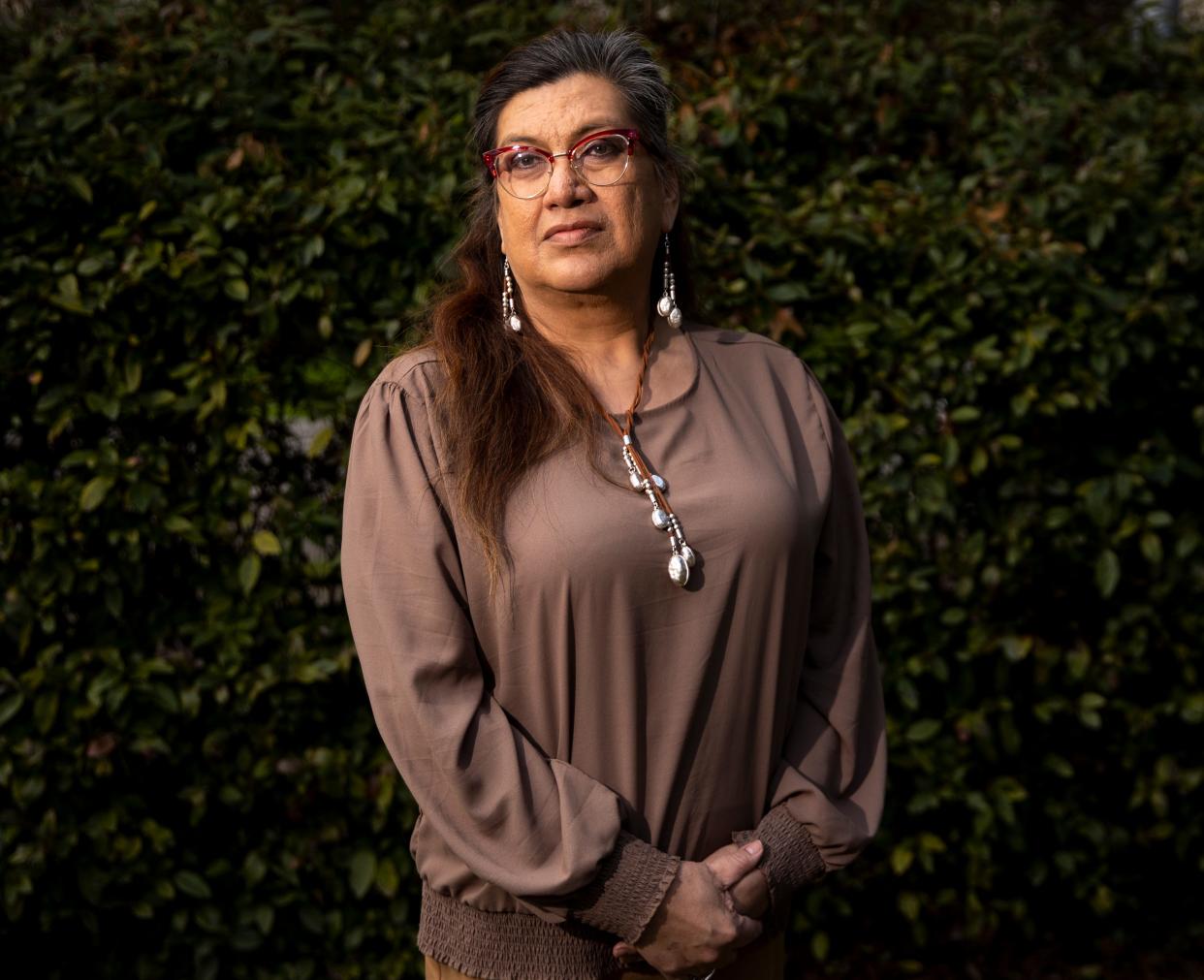Oregon bill would protect access to reproductive and gender affirming care

Corrections & Clarifications: This article has been updated to accurately reflect that former House speaker Dan Rayfield formed the reproductive health and access to care workgroup.
Christina Wood experienced an array of financial and accessibility hardships when trying to receive care to support her transition journey.
Wood moved from New Mexico to Oregon in hopes of finding more providers and insurance that would cover her gender affirming care, which is any type of physical or behavioral healthcare a person receives to affirm their sense of self and increase their sense of safety. It can range from hormone therapy and electrolysis to behavioral health counseling.
While many states are proposing legislation that would limit or completely block access to these types of care, advocates and legislators in Oregon hope to pass HB 2002, which would protect and decrease gaps in access to reproductive and gender affirming healthcare.

HB 2002 explicitly lists reproductive and gender affirming healthcare that would require insurance coverage by any health benefit plan in the state of Oregon, including abortion, contraceptives, sexually transmitted infections screening, breastfeeding support, domestic violence counseling, electrolysis and facial surgery.
“Hopefully a bill like this would be able to cut down some of those barriers because it does take a toll on somebody, you know. I've waited all my life to be the person that I am now,” Wood said.
Bill Summary
The legislation would largely ensure patient access and provider ability to give reproductive and gender affirming healthcare without the potential of interference or prosecution.
It also would make interfering with access to or from a healthcare facility a crime punishable with up to 364 days imprisonment.
A section of the bill addresses access to reproductive care on college campuses and requires the provision of emergency contraceptives and medication abortion.
“We believe that every person should have the freedom and the right to control what they do with their bodies and their futures,” said Cassie Purdy, political director of Planned Parenthood Advocates of Oregon.
A critical moment
The Oregon proposal to protect access to reproductive and gender affirming care comes at a critical moment, said Seth Johnstone, transgender justice program manager at Basic Rights Oregon.
In June 2022, the U.S. Supreme Court overturned Roe v. Wade, eliminating the federal right to abortion which had been in place for nearly 50 years. Since then, there has been a trend of restricting reproductive and LGBTQ rights.
“Here in Oregon, we recognize the severity of this and swiftly moved to outline which protections were in place that needed to be outlined in statute,” Johnstone said.
Idaho’s trigger law put a total ban on abortion except in the cases of life of the pregnant person, rape or incest. Criminal abortion outside of statutes in Idaho is defined as a felony punishable by two to five years imprisonment.
In Arizona, a law was signed banning gender affirming care for those under age 18.
More than 400 anti-LGBTQ bills have been introduced nationwide during the 2023 legislative session, according to the American Civil Liberties Union.
“Every person in Oregon should have access to high quality health care, no matter who they are, where they live, or how much money they make,” said Purdy.
Who is behind the bill?
In 2022, then Speaker of the House Dan Rayfield formed the reproductive health and access to care workgroup. The panel included representatives from community organizations, advocates, healthcare providers, legal experts and statewide advocacy organizations.
The group worked to identify challenges that healthcare providers and facilities were facing in delivering care and what barriers patients face in accessing care. They also pinpointed legal issues patients and providers might face.
The workgroup established concepts that became the “scaffolding of this bill,” said Johnstone.
Where is it in the legislative process?
HB 2002 was introduced on Feb. 28 and referred to the House Committee on Behavioral Health and Health Care. It has been subsequently referred to the Joint Committee on Ways and Means.
A hearing is scheduled for 3 p.m. March 20 in Hearing Room F at the Capitol. Those wishing to testify can register on the Oregon Legislature website.
A work session on the bill also is scheduled before the Committee on Behavioral Health and Health Care for 3 p.m. March 27 in hearing room F.
Sydney Wyatt covers healthcare inequities in the Mid-Willamette Valley for the Statesman Journal. Send comments, questions, and tips to her at SWyatt@gannett.com, (503) 399-6613, or on Twitter @sydney_elise44
The Statesman Journal’s coverage of healthcare inequities is funded in part by the M.J. Murdock Charitable Trust, which seeks to strengthen the cultural, social, educational, and spiritual base of the Pacific Northwest through capacity-building investments in the nonprofit sector.
This article originally appeared on Salem Statesman Journal: Oregon bill would protect access reproductive, gender affirming care

